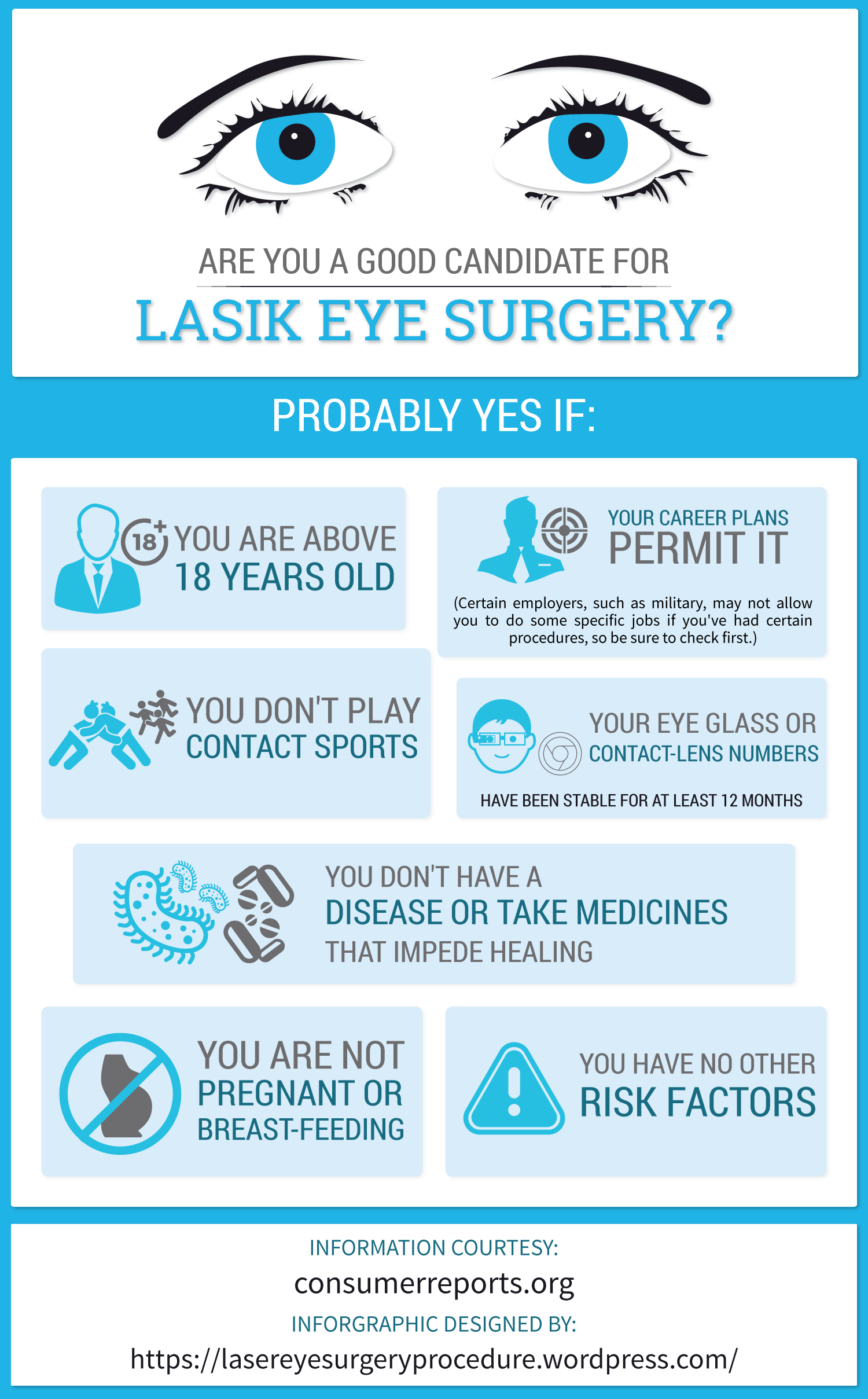Uncertain About SMILE Surgical Procedure? Explore Crucial Aspects And Understandings That Will Lead You In Making A Well-Informed Choice Regarding Your Vision's Future
Uncertain About SMILE Surgical Procedure? Explore Crucial Aspects And Understandings That Will Lead You In Making A Well-Informed Choice Regarding Your Vision's Future
Blog Article
Created By-McDowell Thestrup
If you're pondering SMILE eye surgery, contemplate this: are you prepared to welcome prospective visual freedom, or does the thought of any kind of dangers make you hesitate? Your choice will hinge on a cautious balance of weighing the advantages versus the unpredictabilities. It's important to delve deeper right into the subtleties of SMILE surgery to make an informed choice that straightens with your visual objectives.
Recognizing SMILE Eye Surgical Treatment
When thinking about SMILE Eye Surgical treatment, it's important to understand the procedure and its advantages. SMILE, which means Small Cut Lenticule Removal, is a minimally intrusive laser eye surgical procedure that corrects common vision problems like myopia (nearsightedness).
During the procedure, your eye cosmetic surgeon will certainly use a femtosecond laser to develop a tiny laceration in your cornea. Through this cut, a small disc of cells called a lenticule is eliminated, improving the cornea and correcting your vision.
One of the vital advantages of SMILE Eye Surgical procedure is its fast recovery time. Several clients experience enhanced vision within a day or more after the procedure, with very little discomfort.
In addition, SMILE is understood for its high success rate in providing lasting vision correction. Unlike LASIK, SMILE doesn't require the development of a flap in the cornea, reducing the risk of difficulties and allowing for a more stable corneal framework post-surgery.
Comprehending the treatment and its advantages is vital when taking into consideration SMILE Eye Surgery for vision modification.
Benefits and drawbacks of SMILE
Considering SMILE Eye Surgery for vision improvement features numerous benefits and potential downsides.
Among the main pros of SMILE is its minimally invasive nature, as it includes a small incision and commonly leads to fast healing times. The procedure is likewise understood for creating minimal pain and dry eye symptoms post-surgery contrasted to other vision improvement techniques. In addition, SMILE has been shown to supply excellent aesthetic end results, with many people achieving 20/20 vision or much better.
On the other hand, a possible con of SMILE is that it may not appropriate for individuals with extreme refractive errors, as the therapy variety is rather restricted contrasted to LASIK. Cost Of LASIK Vision is that the learning curve for specialists applying SMILE can affect the schedule of skilled companies in specific areas.
It is very important to evaluate these pros and cons very carefully when determining if SMILE is the ideal option for your vision correction needs.
Identifying Qualification for SMILE
To identify if you're eligible for SMILE eye surgical procedure, your ophthalmologist will certainly perform a comprehensive analysis of your eye health and vision demands. Throughout this evaluation, aspects such as the stability of your vision prescription, the density of your cornea, and the general health of your eyes will be assessed.
Typically, candidates for SMILE more than 22 years of ages, have a steady vision prescription for at least a year, and have healthy corneas without problems like keratoconus.
Your optometrist will additionally consider your total eye health and wellness, any type of existing eye problems, and your lifestyle requires to figure out if SMILE is the ideal choice for you. It's important to communicate any particular aesthetic demands or problems you might have throughout this analysis to ensure that the therapy aligns with your expectations.
If you aren't eligible for SMILE, your optometrist may suggest different vision correction alternatives that far better fit your individual requirements and eye health condition.
Final thought
Ultimately, choosing whether SMILE eye surgery is right for you requires mindful factor to consider of your specific eye wellness and visual needs. cataract surgery after lasik from your ophthalmologist to identify your eligibility for the treatment and weigh the prospective advantages and disadvantages. Remember to communicate any type of concerns or concerns you may have throughout the evaluation procedure to make an educated decision regarding your vision correction choices.
